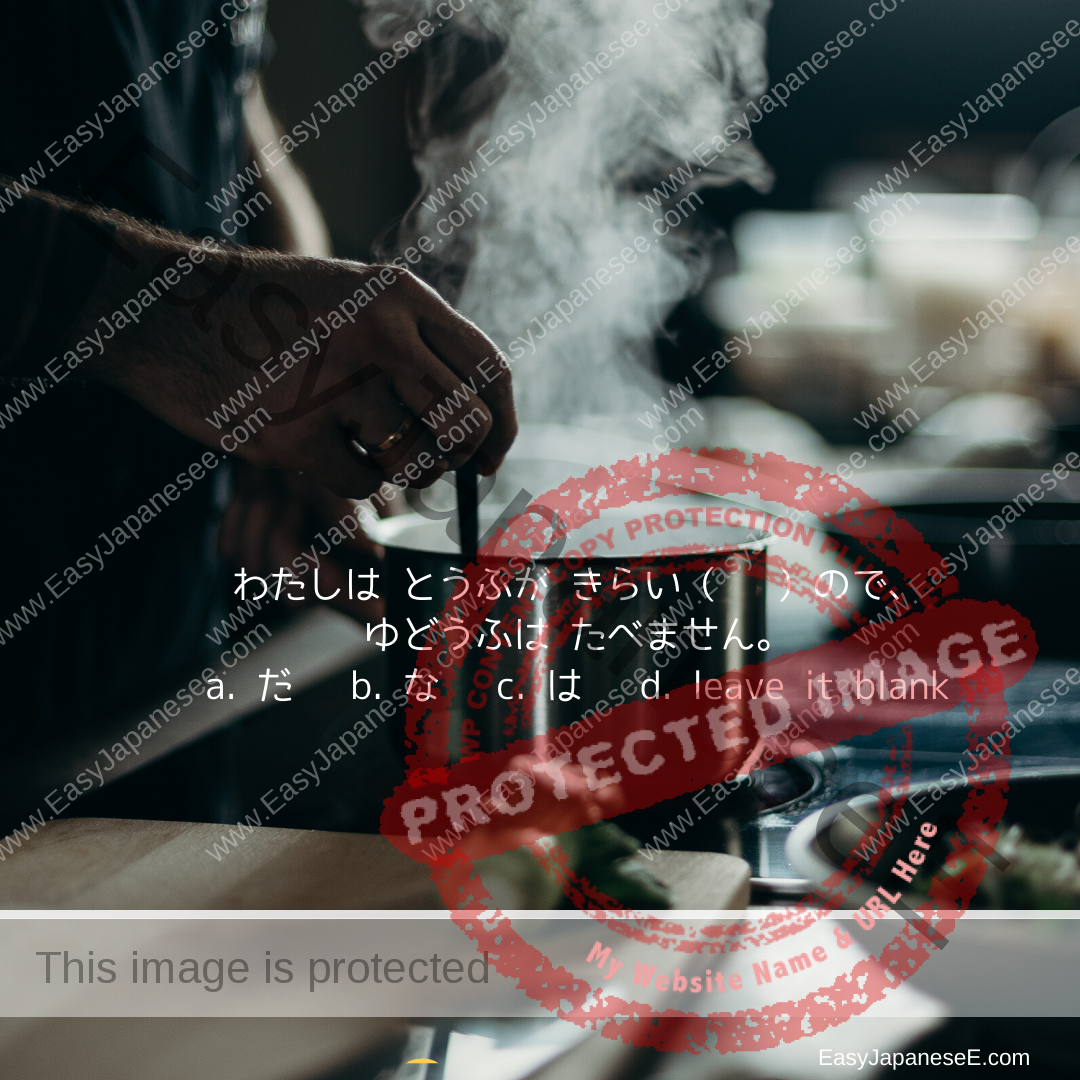わたしは とうふが きらい( )ので、ゆどうふは たべません。
a. だ b. な c. は d. leave it blank
Today’s topic is the conjunctive particle ので. It is similar to から but it is more objective. For the difference in meaning between ので and から, read this post.
[なadj] + から/ので
The usage difference between ~から and ~ので you need to remember is when you use a noun or a なadjective in the non-past tense before から or ので.
- [noun or なadj] + だ + から
- [noun or なadj] + な + ので
So the correct answer for today’s question is b. な.
むすこは しょうがくせいだから、でんしゃは はんがくです。
むすこは しょうがくせいなので、でんしゃは はんがくです。
As my son is a primary school pupil, his train fare is half price.
そぼは げんきだから あんしんしました。
そぼは げんきなので あんしんしました。
I’m relieved that my grandmother is healthy.
For other types of words and past tense, ~から and ~ので can be used in exactly the same way.
きゃくが くるので、あわてて へやを かたづけた。(non-past verb)
As a guest was arriving, I tidies my room in a hurry.
つかれたので はやく ねます。(past verb)
As I am tired, I will go to bed early.
新幹線は高いのでバスにしました。(non-past いadjective)
しんかんせんは たかいので ばすに しました。
As the shinkansen is expensive, I decided to use a bus.
新幹線は高かったのでバスにしました。(past いadjective)
しんかんせんは たかかったので ばすに しました。
As the shinkansen was expensive, I decided to use a bus.
わたしは とうふが きらいだったので ゆどうふを たべませんでした。(non-past なadjective)
I didn’t like tofu, I didn’t eat boiled bean curd.
むすこは しょうがくせい だったので、でんしゃは はんがくでした。(noun with だった)
As my son was a primary school pupil, his train fare was half price.


One Reply to “~ので”